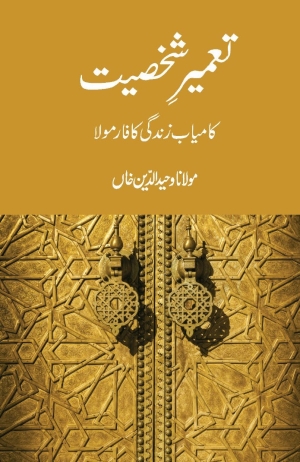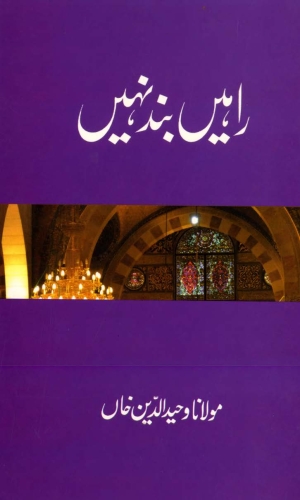The French President Charles de Gaulle (d. 1970) was a top general in the French Army, but later manipulated his way to the post of President. On the face of it, this was an anti-democratic move, but by doing so, de Gaulle was able to save France in a manner that a democratically elected government could not possibly have adopted. He unilaterally announced the end of French rule in a number of French colonies in Africa and elsewhere, because this was proving to be a burden for France, rendering France as the ‘sick man’ of Europe in the wake of the Second World War, when all European countries except for France were making great strides towards progress and development. It was this decision, against the wishes of the people, which made France one of the developed nations of the world. Obviously, this move, which was widely unpopular in France, was a necessary one for the greater good of the country, but only a bold and strong ruler could do this, unmindful of popular sentiment and opposition.
Now there are two starting points. One is to seek to change the status quo by removing the roadblock for further action. The other is to accept the status quo as it is and to make concerted efforts to avail of the opportunities which are already available in the given status quo. This second approach is what is called ‘positive status quoism’. This is in accordance both with reason and with the teachings of Islam. The Quran enjoins: “Reconciliation is the best. (4: 128) That is, the best way to settle a conflict is to follow the policy of reconciliation. In other words, conflicts are best resolved by the contending parties avoiding confrontation and by coming to a mutual understanding.
Radicalism always produces violence and exacerbates a given problem. In contrast, positive status quoism fulfils its purpose without creating any problems in society while preserving social peace. The former leads to destruction, and the latter to constructive action.
Featured Articles
Featured Videos
FAQs
Both reason and religion advocate unilateral adjustment. It means the acceptance of reality. It is because, in every adverse situation, a status quo exists between the two sides. If any party opts for a change in the status quo the result will be breakdown. Instead, by accepting the status quo as reality, it will find room for advancement toward its goal. The Quran says that of all courses, reconciliation is the best (4:128). That is, in matters of controversy, the best policy is unilateral adjustment, or peaceful settlement rather than confrontation. This is because unilateral adjustment or peaceful settlement gives one scope to make progress, whereas confrontation arrests the onward journey to success.
Peace is a must not only for our advancement but for our very survival. But peace can be attained only by accepting two simple precepts. Make all efforts to change what we can, and learn to live with the things which we cannot change. In matters which we can change we should be dedicated activists. In matters which we cannot change, we should become status quoists. Otherwise, peace for us will forever remain a distant dream.
Source: Spirit of Islam April 2019
Positive status quoism can also be defined as a de-linking policy, which entails finding ways of peaceful action despite the existence of controversies. This means that irrespective of there being a confrontational state of affairs or other adverse circumstances. Such strategies should be adopted as may prevent war being waged and violence taking place. Controversial issues must be set aside so that present opportunities may be availed of in an atmosphere of peace. In following this policy, two gains simultaneously accrue: one, the establishment of peace, notwithstanding the pernicious atmosphere created by controversies; and two, the optimization of work opportunities, despite the presence of problems. One great benefit of this de-linking policy—in that it is the most felicitous natural formula for the establishment of peace—is that conducive circumstances for result-oriented actions are no longer a matter of the past, but become an actuality today.
Positive status quoism is undoubtedly the most successful strategy for the construction of a peaceful life. The essential condition for the utilization of this strategy, however, is for man to develop the kind of positive attitude which will enable him to rise above his circumstances. Even in the most adverse situations, he should be able to weather all storms as do the big birds of the storm. In this way, he will be able to continue his journey of life uninterrupted.
Source: The Ideology of Peace
Another name for the peaceful method is status quoism. The status quoism of a peace-loving person is not a form of inaction, it is rather a positive plan of action, in the real sense of the word. That is, the peace-love accepts the status quo to remove himself from the point of confrontation to other fields where he may proceed with constructive action. Instead of becoming embroiled in problems he looks to the future aid and directs his energies towards the availing of opportunities. That is why the status quoism of a peace-loving person is indeed positive status quoism.
In this world of diverse interests, positive status quoism is the optimal base for the conception and implementation of constructive projects. Taking up this position may call for special virtues such as insightfulness as well as the capacity for the most superior type of planning. Thus it brings twofold benefits. Firstly, no disturbance of the peace, and secondly and ultimately, the guarantee of success. This formula can thus be summed up: Avoid confrontation, adopt peaceful activism.
To understand this, let us take the example of the rose plant that has both flowers and thorns, Similarly, in the human world there are flowers as well as thorns. It is therefore a common experience for one who wants to engage in any positive activity to feel that there are obstacles in his way, perhaps by the very law of nature. This applies to the individual as well as to the entire nation. Now one way of addressing such a situation is for him to set about removing all obstacles from the path and only then begin to work towards his goal.
Another method is of avoiding confrontation with the status quo and chalking out a plan for possible action within possible spheres. By temporarily accepting the status quo, current opportunities may then be availed of. This is what I call positive status quoism.
While striving to change the status quo invariably produces violence; on the contrary, positive status quoism fulfills its target by keeping the peace in society. While the former invariably aggravates the problem, the latter, by avoiding friction, proceeds smoothly, without creating any problems. If one is the way to perversion, the other is the way to construction.
Source: Ideology of Peace










